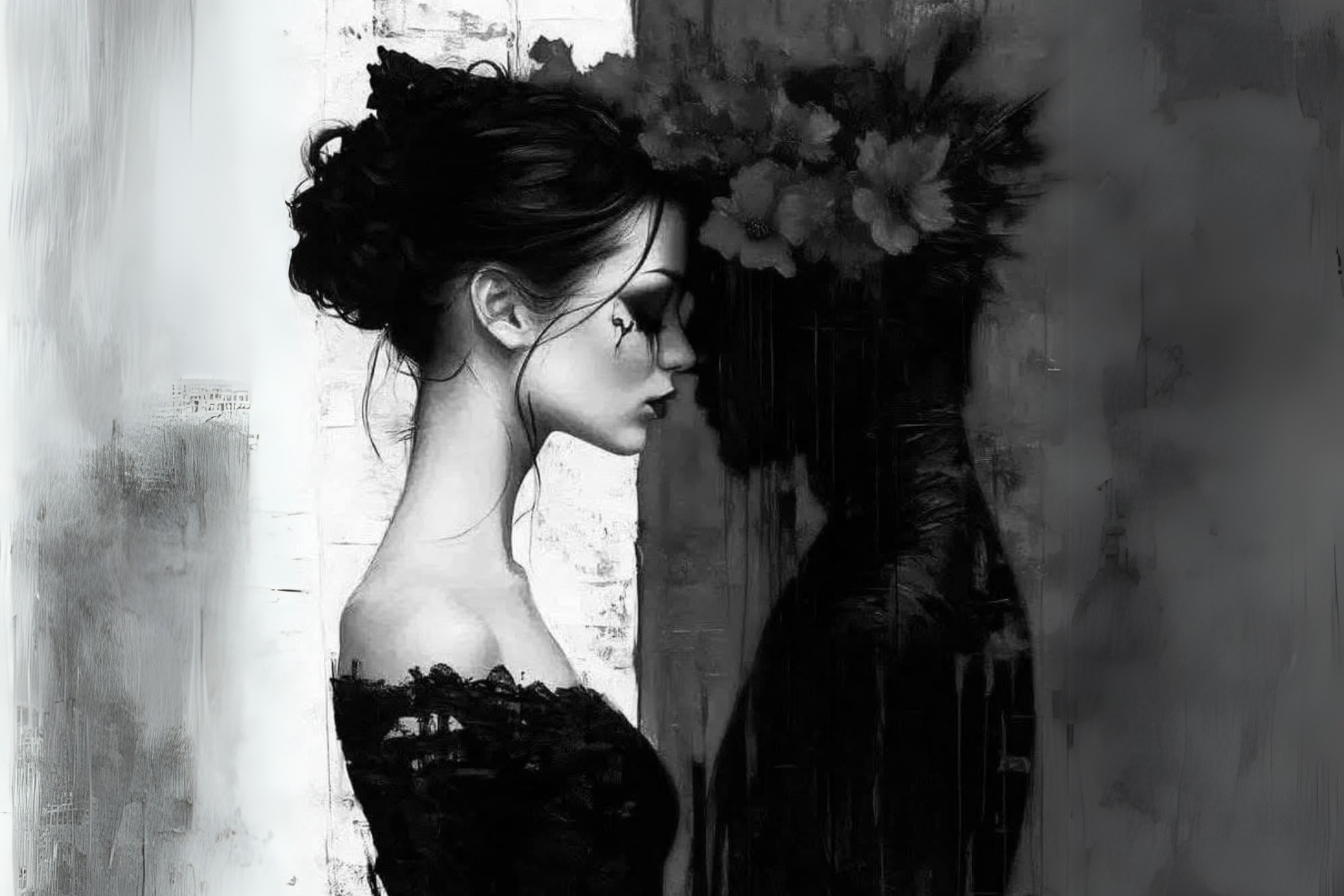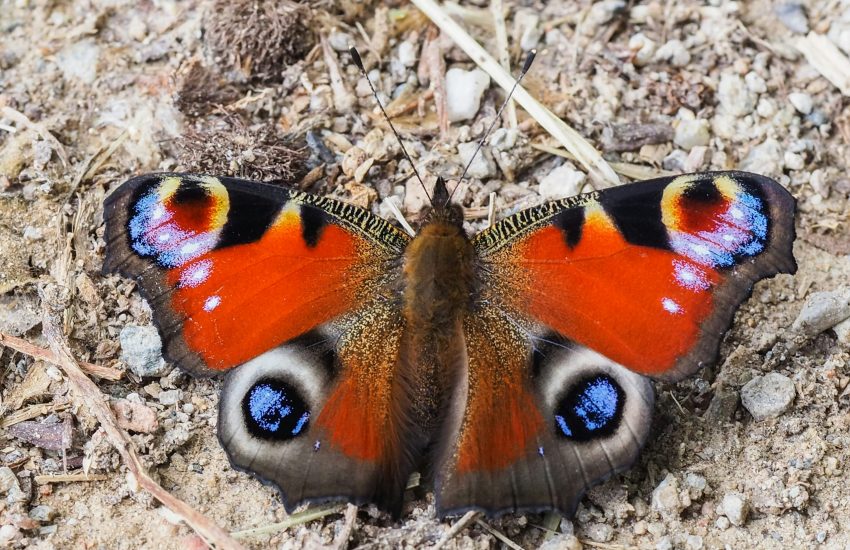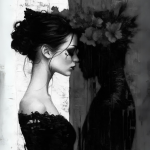The double-edged sword of grief. Living without them.
“A part of me died. It didn’t kill me, but something in me changed, A piece of me lost, forever estranged. I walked away, yet not the same, A shadowed soul, a quiet flame. That day took part of who I was, left me searching, without cause. I carry on, but feel the void. A heart once whole, now destroyed. It didn’t end me, but l’ll never be whole. An echo remains, deep in my soul. I’m here, I breathe, but truth be told, a part of me, that day, quietly died with you.” – Unknown
In the last few years, I’ve lost count of the number of times I’ve uttered the words “sorry for your loss” and although I meant every word, I never really truly understood how empty and meaningless those words feel to the person who has lost one of the most important people in their life… well not until I lost my mum.
They say that losing a parent changes you forever. They also say time heals all wounds. What they fail to mention is that grief isn’t linear. Unlike a book you can read, close, and put back on the shelf, grief is a jagged, unpredictable mess of emotions. It’s a tornado, chaotic, unpredictable, and utterly devastating.It’s like living two lives. One, where you pretend that everything is ok. The other, where your heart screams silently in pain. One moment, you’re standing in the calm before the storm, convincing yourself that you’re strong enough to weather it. The next, you’re being lifted off your feet, spun in circles, and dropped into a reality where everything you once knew is shattered, unrecognisable, and drenched in sorrow. One moment, you’re laughing at a fond memory, and the next, you’re crumpled on the floor because you caught a whiff of their old perfume on a stranger.
But when you lose a parent, grief becomes something else entirely. It becomes your shadow, your companion. It’s the kind of pain that doesn’t just sit in your heart, it settles in your bones, weaves itself into your skin, and whispers in your ear at the most unexpected moments. It’s a heartbreak that doesn’t heal in the way broken broken bones do; there’s no cast, no timeline, no clear trajectory towards “better.” Instead, the grief lingers, shapeshifts, and evolves, becoming as much a part of you as the love they left behind. Their absence leaves a gaping void, and in that void, guilt creeps in like an uninvited squatter, unpacking its bags and making itself at home, with no sign of leaving anytime soon.
In the beginning, it’s suffocating. The world feels off-kilter, like when someone doesn’t put the cushions back in the same way you always stack them. Everything looks the same, but nothing is. People talk to you in hushed tones, their eyes brimming with sympathy, yet, they still laugh, still drink their morning coffee, still talk about the weather, and go about life like they would any other day. It’s in that moment you realise that your world may have stopped, but theirs is still exactly the same. And that’s when you want to scream at the absurdity of it all. How can the world keep spinning when yours has stopped?
You start to experience and see life in a totally different way, which unknowingly also reshapes your relationships. Friends react in different ways, some show up with unwavering support, while others, well, disappear like mist on a summer morning. The harsh truth is grief makes people uncomfortable. No one quite knows what to say, and so often, they say nothing at all.
There are those friends who will sit with you in silence, the ones who instinctively know that presence matters more than platitudes. They send texts that simply say, “Thinking of you” and let you cry without trying to fix you. These are the friends who understand that grief is not a problem to be solved but a weight to be carried, sometimes together, sometimes alone.
Then there are those who try, bless them, but miss the mark. The ones that say, “sorry for your loss” or “everything happens for a reason”. Words that come from a place of kindness, but sting, nonetheless. The reality is, sometimes things don’t happen for a reason, and sadness is the only appropriate response. When they ask you “how are you?” you have this strong urge to scream at them “I just lost my mum, how do you think I am? And more to the point, you don’t really want to know how I am, because if I really told you how I was, you’d never ask me such a stupid question again” but instead you plaster a smile on your face and reply with“fine thank you”. In fact, you become the queen of fake smiles becoming totally desensitised to what people say.
And then there are the friends who simply fade away. They don’t know how to handle the version of you that isn’t strong, smiling and composed. Whatever the reason, their absence is a lesson in its own right: grief has a way of revealing who truly belongs in your life. But just as some people vanish, others appear. Unexpected friendships bloom in the most unlikely of places, colleagues who have been through the same thing, acquaintances who suddenly become confidants. Grief reshapes your circle, leaving behind those who can’t bear the weight and strengthening the bonds with those who show you they can.
That grief has a cruel way of highlighting absence, carving out hollows where someone once stood. It sneaks up on you in the middle of the supermarket when you instinctively reach for their favourite cake, only to remember they’re no longer here to eat it. Grief doesn’t follow a timeline, but it does have a process. It doesn’t care if it’s been six months or six years, it can still knock you sideways on a perfectly ordinary Tuesday afternoon. And then there’s the guilt…
THE FIRST STORM: COULD I HAVE DONE MORE?
The first wave of guilt comes like a lightning strike, sharp, sudden and electrifying. It makes you question everything. Did I call enough? Did I say I love you enough? Did I truly appreciate them when they were here? We rewrite history in our minds, turning ourselves into saviours who failed to save. But here’s the thing, even though I know we are not gods or time travellers, I’m just human, flawed and fragile, just like the people we love, I can’t control the guilt or when it strikes. This b*stard guilt is not rational. It does not care about logic or facts. It’s always there lingering in the shadow, like a storm, whispering, ‘where were you when she needed you?’ And so, I punish myself, as though this self-inflicted pain will somehow bring my mum back.
In the beginning I spent every night lying awake, replaying every conversation, every moment, chastising myself for not being a better daughter, for being short with my mum, searching for signs that even though I didn’t say it, my mum knew I loved her. The ‘what ifs’ and ‘if onlys’ filled and continue to fill my mind like a broken record, as if somehow, in revisiting the past, I can change the present. But the truth is, I could have been the most perfect daughter and even if I’d done everything ‘right,’ the storm would still come. And when the what-ifs and should-haves play on a loop, I have to remind myself that love, in its truest form, is never measured by grand gestures but in the smallest, unremarkable moments.
IN THE EYE OF THE STORM: THE GUILT OF LIVING
Then, when the initial destruction has passed, a different kind of guilt takes over. The guilt of survival. The guilt of laughter. The guilt of moving forward while they remain frozen in time. The first time I laughed after losing my mum, it was one of those accidental giggles, the kind that slips out before you realise. And then, just as quickly, I felt sick. How could I? How could I find joy when she would never laugh again? It felt like a betrayal, as though my happiness was proof of my mum’s insignificance. Even though I know my mum would have hated to see me sad and not live life. It’s taken a lot for me to realise that grief is not just about remembering someone in sorrow; it’s about carrying them with us in moments of joy. They don’t disappear just because we move forward. In fact, they live on in the way we love, the stories we tell, the kindness we show. We honour their memory, not just in sadness, but in joy.
THE AFTERMATH: ADAPTING TO LIFE WITHOUT THEM
But you don’t quite realise how brutal the firsts are – The first birthday without her; The first Christmas where her seat at the table remains empty and only her picture resides; The first time you go to shout ‘mum’ and realise, with a stomach-churning jolt, that she can’t hear you. The realisation that you will never again hear her say your name, never get a voicemail that simply says, “it’s your mum, call me” It’s these tiny, seemingly insignificant moments that cut the deepest. And then, just when you think you’ve braced yourself for the worst, you realise there are so many firsts you haven’t accounted for. The first time something good happens and she’s not there to celebrate; the first time you go to a family gathering and realise she won’t be there to celebrate with you; the first time you truly understand something she always tried to teach you, only now she’s not around to hear you say, ‘ok mum you were right, I get it now’.
But then, slowly, painfully, you start rebuilding. You sift through the wreckage of your old life and pick up what you can. Some pieces fit together again; others never will. You adapt. Not because you ‘get over it’, you never do, but because life insists that you keep going. You learn to speak about her without breaking. You find new rituals, ordering her favourite food, listening to her favourite song, carrying a little piece of her in the way you live. You learn that grief is not a finish line to cross but a companion you walk with, some days heavier than others.
There are days when the storm returns, unexpected and unrelenting. A song on the radio, a moment you know would have bought her joy, a strangers kind words, an old photograph discovered at the bottom of a drawer, these moments knock the wind out of you, a reminder that the loss never truly fades, even when the person does. But one day, without even realising it, you step outside, and the sky is clear. The storm has passed, and while the landscape of your heart is forever changed, you are still here. And that, in itself, is a triumph.
THE NEW NORMAL: MOVING FORWARD
Grief can feel lonely. But it’s not the kind of loneliness you’re used to. It’s the kind of loneliness that lingers in a crowded room, that presses against your chest in the middle of the night. You realise that no matter how many people love you, no one will ever love you quite like she did. No one else will ever have that all-knowing, unconditional, unwavering kind of love that only a mother can give. And so, you learn to navigate the world a little differently, searching for echoes of her in the people around you, in the kindness of a stranger, in the way the sky looks just before dusk.
People often talk about ‘moving on’ after loss, but I prefer to think of it as ‘moving forward’, because we don’t leave the ones we loved and lost behind. They walk with us, in the way we live, in the way we love, in the way we carry their memory. We honour them by living fully, by finding joy, by laughing without guilt. We honour them by being kind, by loving fiercely, by taking risks, by embracing all that life still has to offer. Because if that love has taught us anything, it’s that it does not end with loss. It transforms, it evolves, and it continues, carried in the hearts of those left behind.
So, you learn to carry it. You learn to make space for it. You learn that grief doesn’t shrink, but your ability to hold it grows. You learn that grief doesn’t just vanish. It stays, it lingers, it becomes a part of you. And one day, without realising it, you find yourself smiling at the memory of her instead of crying. And maybe, just maybe, that’s what she would have wanted all along.
Mum, you raised me to be strong, and I’ve conquered many challenges that life has thrown at me, but holding your hand for the last time was the second most difficult thing I’ve ever had to do. Because letting go of your hand for the last time was undoubtedly the first. But as I step forward, not into a world without you, but into a world where you’ll remain, woven into my stories, my choices, and my love. In me you will always live.











Suki this is written so eloquently, you have expressed the emotions and the pain of losing a mother one of the first people to love you so deeply losing them would have always been a very very hard almost unbearable time .
Losing mum is categorically one of the hardest times of my life .
4 years on and it’s still is very raw but as you have explained the process of grief in the first moments are written so so accurately .
Sending you love always 🫶🏼🫶🏼